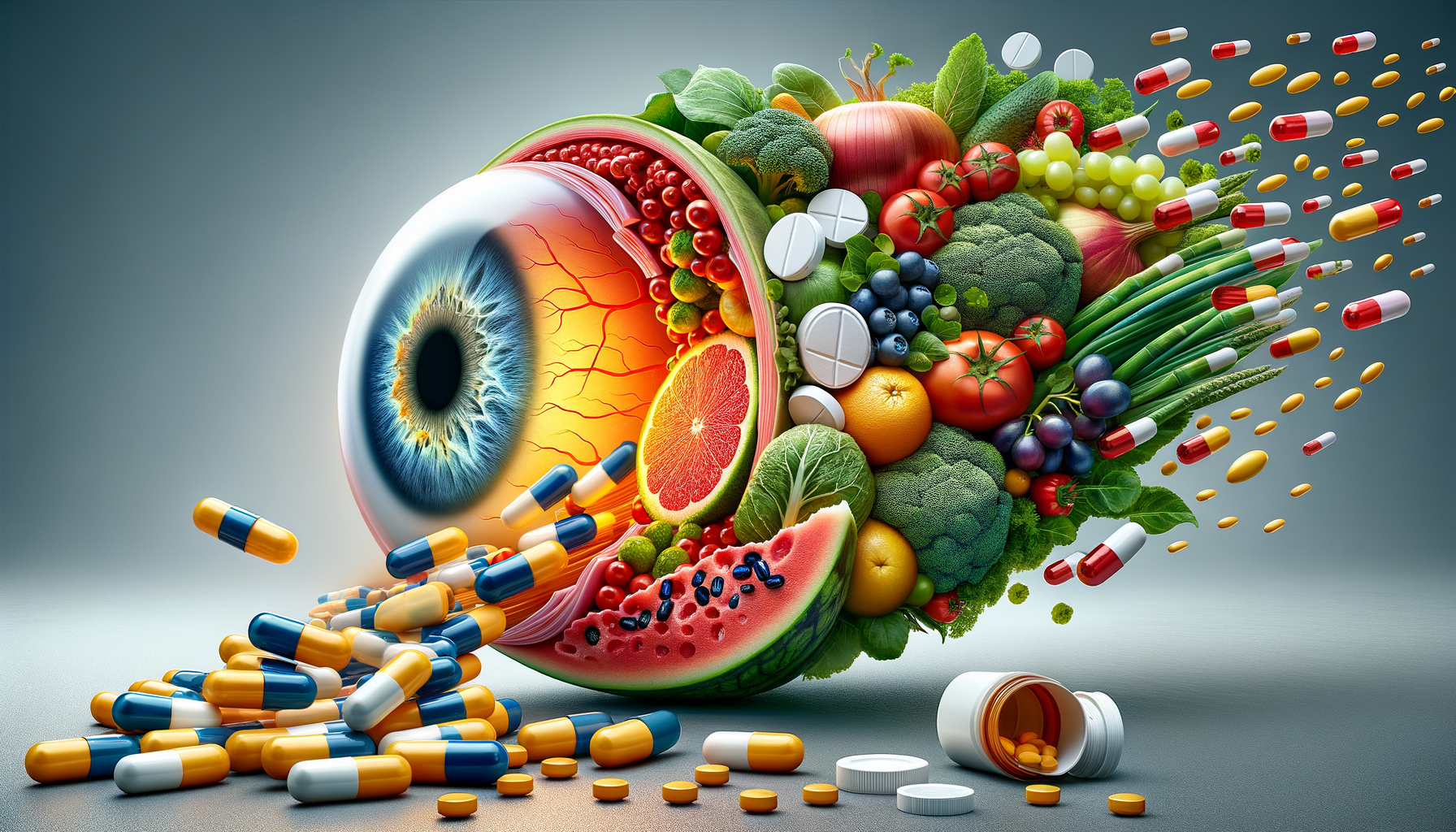Feeding Your Sight: The Impact of Diet and Medication on Macular Degeneration
Grasp the importance of diet and medication in the successful management of macular degeneration.

The Role of Nutrition in Macular Degeneration
Macular degeneration, a leading cause of vision loss in older adults, is intricately linked to nutrition. The macula, a small part of the retina responsible for sharp central vision, can deteriorate due to age-related factors. However, dietary choices can play a significant role in either mitigating or exacerbating this condition. Research suggests that a diet rich in antioxidants, vitamins, and minerals can help protect the macula from further damage. Leafy greens, such as spinach and kale, are known for their high levels of lutein and zeaxanthin, carotenoids that are concentrated in the macula and help filter harmful blue light. Omega-3 fatty acids, found in fish like salmon and mackerel, are also beneficial, as they have anti-inflammatory properties that promote retinal health. Meanwhile, a diet high in saturated fats and sugars may contribute to the progression of macular degeneration. Thus, a balanced diet is not just about maintaining overall health but is crucial for preserving vision.
Vitamins and Supplements: A Closer Look
In addition to a nutritious diet, specific vitamins and supplements have shown promise in supporting eye health and potentially slowing the progression of macular degeneration. The Age-Related Eye Disease Study (AREDS) has highlighted the effectiveness of a particular combination of vitamins C and E, zinc, copper, lutein, and zeaxanthin in reducing the risk of advanced macular degeneration. These supplements are thought to work by reducing oxidative stress and inflammation, two key factors in the degeneration of the macula. However, it’s important to approach supplementation with caution and under medical guidance, as excessive intake of certain vitamins and minerals can have adverse effects. For instance, high doses of zinc can interfere with copper absorption, leading to other health issues. Therefore, while supplements can be a useful tool in managing macular degeneration, they should complement, not replace, a healthy diet.
The Impact of Medication on Macular Degeneration
Medication plays a pivotal role in the treatment of macular degeneration, particularly in its wet form, where abnormal blood vessels grow under the retina. Anti-VEGF (vascular endothelial growth factor) medications are commonly used to inhibit the growth of these vessels and reduce fluid leakage, thereby preserving vision. These medications are typically administered through injections into the eye, and while they can be highly effective, they may require regular administration to maintain their benefits. It’s worth noting that while medication can significantly slow the progression of wet macular degeneration, it is not a cure. Patients often need ongoing treatment and monitoring to manage their condition effectively. Additionally, emerging treatments, such as gene therapy and new drug formulations, are being explored to enhance the management of macular degeneration, offering hope for future advancements in this field.
Comparing Dietary and Medicinal Approaches
When it comes to managing macular degeneration, both dietary and medicinal approaches have their strengths and limitations. Nutrition offers a proactive way to support eye health and potentially slow the progression of the disease. It empowers individuals to make lifestyle changes that can have a lasting impact on their vision. However, dietary changes alone may not be sufficient for those with advanced stages of macular degeneration. In such cases, medication becomes crucial. Anti-VEGF injections, for example, are effective in treating wet macular degeneration but require a commitment to regular treatments. The combination of both approaches often provides the most comprehensive care, as medication can address immediate threats to vision, while a healthy diet supports long-term eye health. Ultimately, a personalized approach that considers the individual’s specific condition and lifestyle is key to effectively managing macular degeneration.
Summary: Integrating Diet and Medication for Optimal Eye Health
In conclusion, the interplay between nutrition and medication is vital in managing macular degeneration. A diet rich in antioxidants, omega-3 fatty acids, and essential vitamins can support eye health and potentially delay the progression of the disease. Supplements, when used appropriately, can further bolster these efforts. Meanwhile, medication, particularly for wet macular degeneration, remains a cornerstone of treatment, offering significant benefits in preserving vision. By integrating both dietary and medicinal strategies, individuals can take a comprehensive approach to manage their condition, potentially improving their quality of life. It is essential for patients to work closely with healthcare professionals to tailor a plan that suits their needs, ensuring they receive the most effective care possible.